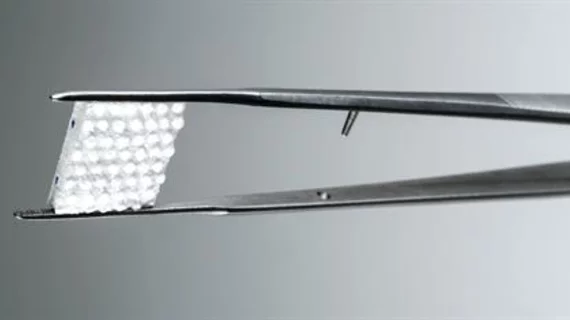New radiation therapy treatment stalls recurrence while sparing healthy tissue in patients with brain cancer
A new radiation therapy treatment has the potential to “extend lifespans and improve quality of life” in patients with brain cancer, according to experts at UC San Diego Health.
The approach—called GammaTile—involves placing small radiation seeds at a tumor site during surgery. The seeds are naturally absorbed into the body to treat malignant brain tumors by precisely targeting tissue where tumors are most likely to recur. This method enables clinicians to spare the healthy tissue surrounding tumors in patients as well.
In a clinical trial involving patients with recurrent tumors, the FDA-cleared treatment resulted in twice as many tumor-free months compared to other treatments such as chemotherapy.
Standard treatments for brain cancer are invasive and time-consuming, with radiation therapy sessions often totaling 30 or more treatments. These treatments can also deteriorate patients’ quality of life due to the damaging effects of radiation and the risks of surgery. And even with treatment, recurrence is not uncommon. Thus, there is a need for additional treatment strategies.
“The number of radiation sessions patients with brain cancer undergo can be stressful and time consuming. This new radiation therapy will allow us to provide select patients with recurrent brain tumors an alternative option,” Parag Sanghvi, MD, radiation oncologist at Moores Cancer Center at UC San Diego Health said in a release. “Ultimately, we will provide therapeutic doses of radiation to the tumor, while minimizing additional radiation dosage to previously irradiated brain tissue.”
UC San Diego began offering the treatment option in July 2022 and is currently the only hospital system in the area where this sort of brachytherapy is available.
“As the only academic medical center in the region, UC San Diego Health is committed to offering patients with brain cancer the most innovative and effective treatments available,” said Marc Schwartz, MD, neurosurgeon at UC San Diego Health. “This new treatment option may extend the lifespan for certain patients and improve their quality of life.”
To learn more, click here.

